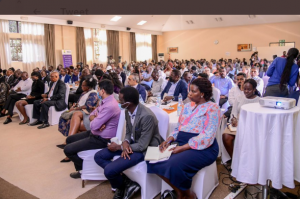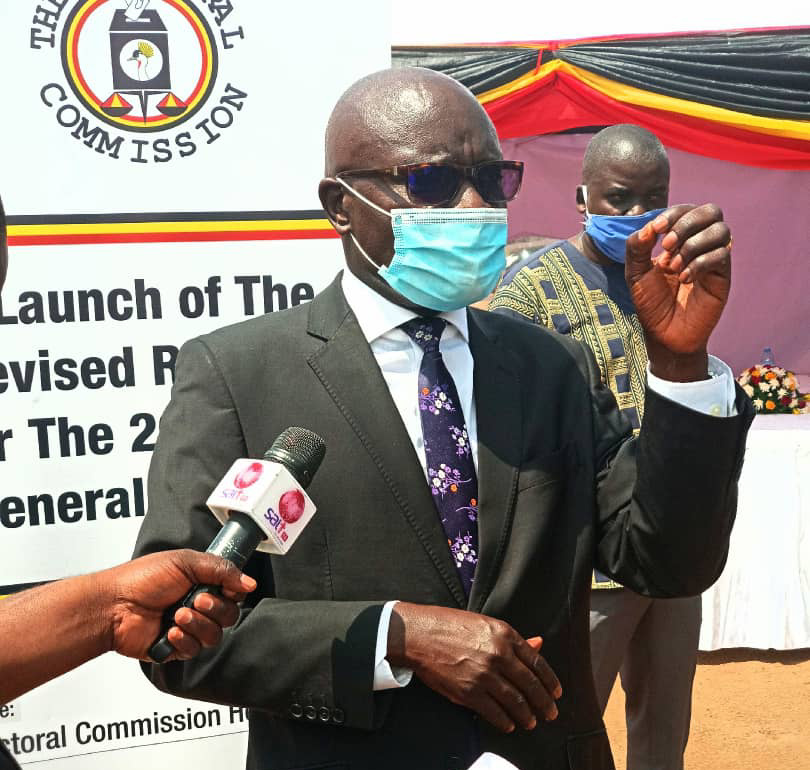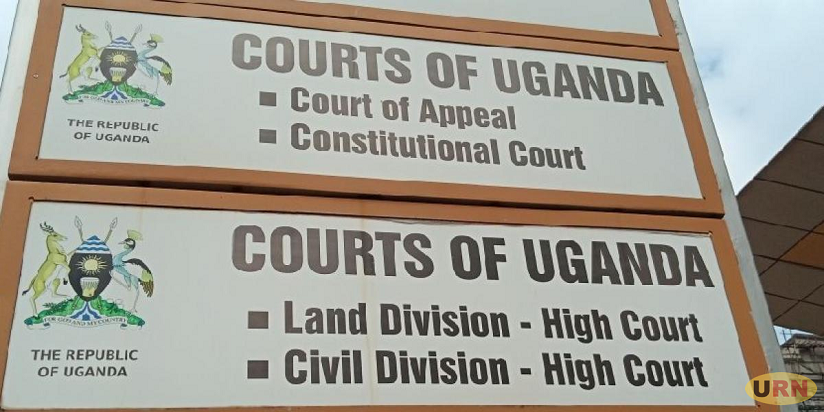UHOA President, Susan Muhwezi (Right) and URA Commissioner General, John Musinguzi (2nd Right) following the discussions
The Uganda Revenue Authority (URA) and the Uganda Hotel Owners Association (UHOA) Thursday spent four hours at Protea Hotel in Kampala dialoguing on how best to improve service delivery and grow revenue.
Led by URA Commissioner General, John Musinguzi, and Susan Muhwezi, the President of UHOA, hotel owners were concerned about what they described as numerous taxes and licenses on top of new systems introduced by the tax collector.
“This engagement was very critical because the hotel and tourism sector was hit hard on the onslaught of the Covid-19 pandemic but even before then, we were already asking why we have to pay about 18-20 taxes and seven licenses. Systems – EFRIS, withholding tax and appointment of withholding tax agents are the other issues. Here, you are struggling to get back on your feet after the pandemic, struggling with loans, 25 taxes and licenses and on top of that, comes these systems,” Muhwezi said, appealing for harmony in taxes on the hotels and the tourism sector.
Muhwezi noted that UHOA is cognizant of the fact that URA is the implementer of the policy of government but said the CG is in a better position to advise the government.
To this, UHOA suggested that a working committee composed of UOHA, Tourism Association, Tourism Board and Ministry of Finance be set up to further engage on matters affecting the sector.
“So that we can now engage at a higher level because changing a tax policy needs legislation. We can then continue to engage especially now that they are going into the budgeting process so that some of these issues are dealt with before the next Financial Year).
URA CG Musinguzi acknowledged the role played by the hotel and tourism sector in terms of contributing to taxes, creating employment and supporting a number of businesses that supply to the hotels, such as agriculture, manufacturing, among others.
The two parties however maintained a position on the Electronic and Physical Receipting and Invoicing Solution.
“EFRIS helps us transparently deal with each other. It also lessens the burden of filing returns which would be filed automatically based on the EFRIS report,” Musinguzi said.
He added: “We appreciate the importance of the hotel sector and the key role they play in the economy. So, besides the revenue that they contribute directly (which we believe can grow 10 times) once we have improved compliance in that sector. We will support them because they have a very strategic input in the economy and they support many other sectors of the economy to even pay better taxes and create more jobs.”
Musinguzi backed the idea of creating a working committee of all the key stakeholders, so that together” we can expedite some of the action points that we agreed on here, to enable them to support even a bigger role in reviving the economy.”
“We agreed to create a contact unit within the URA to handle the tourism and hotel sector. So that we have a team that is dedicated to that sector, understands their business and supports them,” Musinguzi said.

In the last Financial Year, the hotel sector contributed about 0.5% to tax. With the Thursday engagement, Musinguzi is optimistic that the revenue collection from the hotel sector will grow ten times in the coming years. URA is expected to collect Shs 25.5 trillion this FY.





